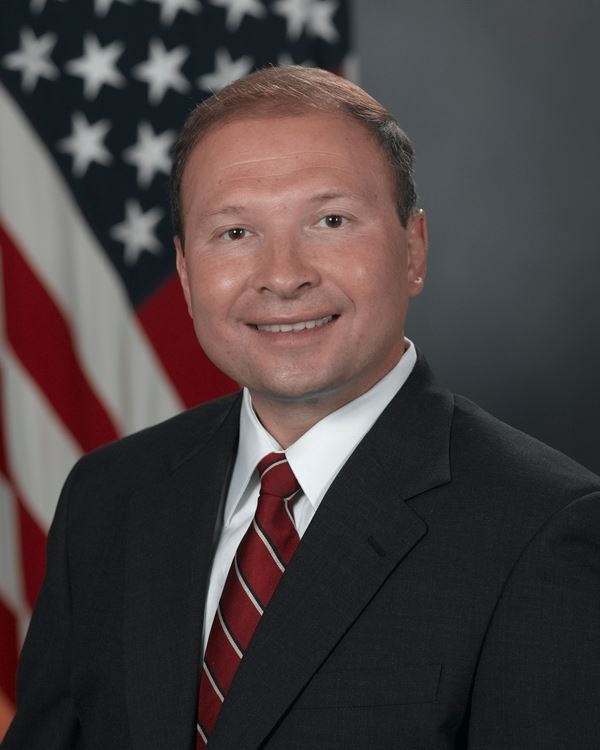EXPERT
Issues
Locations
DOWNLOAD
With the next round of Guantanamo military commission pretrial hearings for alleged USS Cole bombing ringleader Abd Al Rahim al-Nashiri scheduled through Friday, now is a good time to ask why Attorney General Eric H. Holder Jr. is still involved extensively in a presumably military function. Mr. Holder was soundly defeated by Congress and New Yorkers over his ideologically motivated attempts to permanently disable military commissions and transfer self-proclaimed Sept. 11 mastermind Khalid Shaikh Mohammed (KSM) and four co-defendants into a lower Manhattan courtroom. Still, the attorney general has found new ways to shake up the system. Reversing the George W. Bush administration’s practice of uniformed military lawyers leading prosecution teams, with an occasional Justice Department civilian attorney working in a support role, Mr. Holder’s attorneys have begun to serve as lead prosecutors, also known as “detailed trial counsels.” In the al-Nashiri case, the trial counsel is Anthony Mattivi, an assistant U.S. attorney from Kansas. His prosecution team includes Justice Department civilians and military staff. At the Feb. 29 military commission hearing for Majid Khan, a Pakistani citizen who graduated from a Baltimore-area high school, the lead prosecutor was Justice’s Courtney Sullivan. Two military lawyers served as assistant prosecutors. Although Khan is classified as a “high-value detainee” along with KSM and roughly a dozen other key terror suspects, his plea bargain was considerably light. Charged with murder and attempted murder for the 2003 bombing of the J.W. Marriott Hotel in Jakarta, Indonesia, which killed 11 and injured 81, plus plotting to blow up U.S. gas stations and poison our reservoirs, he was given a sentence capped at just 25 years. Was Khan’s plea-bargain agreement to a relatively light sentence related to Mr. Holder’s position over a career civilian prosecutor who ultimately reports to him? I’d hate to think so, but the thought is impossible to dismiss with certainty. Some signs suggest these recent changes are merely cosmetic. The chief prosecutor, Army Brig. Gen. Mark S. Martins, is a career military lawyer who co-led the White House’s interagency review of Gitmo detainees in 2009. Six of the seven convictions also have resulted in relatively lenient sentences. Two detainees prosecuted during the Bush administration are free men already: David Hicks of Australia and Salim Hamdan of Yemen. Yet, given Mr. Holder’s track record at the Justice Department and his previous background, his latest moves ought to raise alarm bells. Here’s why: First, we all remember the “al Qaeda Seven” from the beginning of President Obama’s term. They were the seven Justice Department lawyers appointed to key posts under Mr. Holder despite previous work representing terror suspects whom he declined to identify at a Senate hearing. There actually were nine senior officials in that category – Mr. Holder named just two. The first was Deputy Solicitor General Neal Katyal, who represented Osama bin Laden’s driver in the Supreme Court case Hamdan v. Rumsfeld, which struck down the Bush administration’s first version of military commissions in 2006. The second was Jennifer Daskal, the former senior counsel at Human Rights Watch and one of Gitmo’s most vociferous critics. One of those seven unidentified officials was Tony West, the former defense attorney for American Taliban member John Walker Lindh. Mr. West made news this year with his promotion to acting associate attorney general, making him the No. 3 official at the Justice Department. Mr. West is now higher up in the government than a four-star general. Mr. Holder and his supporters argue that John Adams defended the British soldiers charged in the Boston Massacre of 1770 – implying that even those charged with heinous crimes are entitled to a lawyer. The Supreme Court has backed this view multiple times on Gitmo detainees. Fair enough. But critics point to another analogy: lawyers for mob bosses or drug kingpins, who then would serve in lofty government posts to supervise prosecutions of the same mob bosses or drug kingpins. It’s disturbing to know that lawyers who voluntarily defended terrorists have oversight over lawyers prosecuting terrorists. Mr. Holder’s actions aren’t terribly surprising, given his role as a senior partner at Covington & Burling LLP before service in the Obama administration. It’s one of the leading Washington law firms representing Guantanamo detainees, and its pro bono work for radical Islamic terrorism suspects stands out as a badge of honor on its website – not that there’s anything wrong with that. But do Americans really want lawyers who helped defend al Qaeda and Taliban suspects linked to supervision of their prosecutions? Does it make any sense whatsoever in protecting our nation? From his plans to virtually hand KSM a megaphone for spouting al Qaeda propaganda in New York to barely escaping a civilian jury’s acquittal of Ahmed Ghailani in the bombings at two U.S. Embassies in East Africa to slamming the New York Police Department’s efforts to prevent terrorism, Mr. Holder has given us another reason to question his – and the Obama administration’s – judgment. Read the original article at WashingtonTimes.com.


 J.D. Gordon
J.D. Gordon